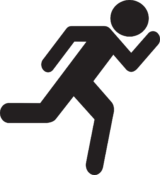The Impact of Head Injuries on Cognitive Abilities and Recovery
Head injuries can be life-altering, affecting not just physical health but also cognitive abilities. Whether it’s a mild concussion or a severe traumatic brain injury (TBI), understanding the impact on cognitive functions and the recovery process is crucial. Let’s dive into the intricacies of how head injuries influence cognitive abilities and what you can do to aid recovery. 🧠✨
Table of Contents
1. Introduction
2. Understanding Head Injuries
3. Cognitive Effects of Head Injuries
4. Steps to Aid Recovery
5. Conclusion
6. FAQs
Understanding Head Injuries
Head injuries, or traumatic brain injuries (TBIs), occur when an external force impacts the head, causing brain dysfunction. These injuries range from mild concussions to severe brain damage. Common causes include falls, sports injuries, and vehicle accidents. Recognizing the severity of a head injury can be challenging, as symptoms may not appear immediately. 🚑
Cognitive Effects of Head Injuries
When it comes to cognitive abilities, head injuries can manifest in various ways:
Memory Loss and Attention Deficits
Memory issues are common after a head injury. Individuals may struggle with short-term memory, recalling past events, or even recognizing familiar faces. Attention deficits, such as difficulty concentrating or staying focused, are also prevalent. 📖
Impaired Problem-Solving and Decision-Making
Cognitive processes like problem-solving and decision-making can be adversely affected. This impairment can lead to challenges in daily activities, from planning meals to managing finances. 🤔
Emotional and Behavioral Changes
Head injuries can also lead to changes in mood and behavior. Individuals might experience mood swings, increased irritability, or even depression. These changes can impact relationships and social interactions. 😟
Steps to Aid Recovery
Recovery from a head injury can be a long and gradual process, but there are ways to support it:
Seek Professional Help
Consulting with neurologists, psychologists, and physical therapists is essential. They can provide tailored treatment plans and therapies to aid recovery. 🩺
Engage in Cognitive Rehabilitation
Cognitive rehabilitation therapy focuses on improving cognitive functions through exercises and activities designed to enhance memory, attention, and problem-solving skills. 🧩
Adopt a Healthy Lifestyle
Maintaining a balanced diet, regular exercise, and sufficient sleep can significantly impact recovery. A healthy lifestyle supports brain health and accelerates the healing process. 🥗🏋️
Conclusion
Head injuries can dramatically impact cognitive abilities, but understanding these effects and implementing effective recovery strategies can make a significant difference. If you or a loved one is dealing with the aftermath of a head injury, remember that recovery is possible with the right support and resources. 🌟
FAQs
Q1: How long does it take to recover from a head injury?
A: Recovery time varies depending on the severity of the injury. Mild concussions may resolve in days to weeks, while severe TBIs can take months or even years.
Q2: Can cognitive abilities fully recover after a head injury?
A: Many individuals experience significant improvement with proper treatment and rehabilitation, although some cognitive deficits may persist.
Q3: What are the first steps to take after a head injury?
A: Seek immediate medical attention, rest, and avoid activities that could worsen the injury. Follow up with healthcare professionals for a comprehensive evaluation and treatment plan.
Q4: Are there any preventive measures for head injuries?
A: Wearing protective gear during sports, using seatbelts in vehicles, and making living spaces fall-proof can help prevent head injuries.
Q5: How can family members support someone recovering from a head injury?
A: Offering emotional support, assisting with tasks, and encouraging therapy participation can aid in the recovery process. It’s also important to be patient and understanding as they heal.
